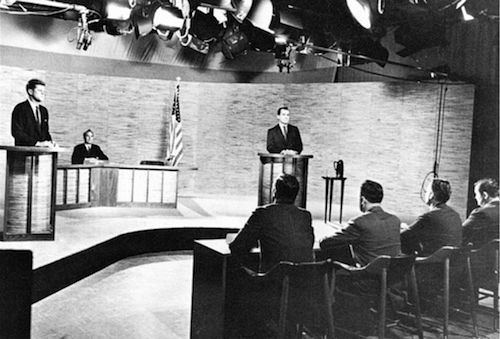 Evolution
Evolution
 Faith & Science
Faith & Science
 Free Speech
Free Speech
In Tonight’s Republican Debate, Will Candidates Be Asked for Their Views on Evolution?

Maybe not tonight, but depending on how things shake out for Trump & Co., there’s no question that the leading Republican contenders will at some point before long be asked in a debate context if they believe in evolution. What should they say in response? Well, they should tell the truth first of all. Obviously, they shouldn’t pretend to hold opinions, for the sake of expedience. Beyond that, here from Stephen Meyer is a brief response that would be both credible and congenial:
Reporter: “Do you believe in evolution?”
Candidate: “I believe that organisms change over time, but I am skeptical about unguided evolution.”
With time to expand on the topic, they could say as follows:
Reporter: “Do you believe in evolution?”
Candidate: “Of course, I believe that organisms have changed over time. Yes, I believe in evolution in that sense. But I am skeptical about unguided evolution. I know that many scientists in peer-reviewed scientific publications have expressed doubts about the creative power of natural selection and random mutation. I think that in learning about the modern version of Darwin’s theory, students should learn why scientists have these doubts. That’s just a matter of basic scientific literacy.”
Or if with still more time for additional commentary:
Reporter: “Do you believe in evolution?”
Candidate: “Of course, I believe that organisms have changed over time. I certainly believe in evolution in that sense. But I am skeptical about unguided evolution — the idea that natural selection and random mutations have produced the major changes in the history of life we observe without any guidance or design. In fact, in peer-reviewed scientific publications, many scientists have expressed doubts about the creative power of natural selection and random mutation. I think that students in learning about the modern version of Darwin’s theory should learn why scientists have these doubts. Understanding the strengths and weaknesses of scientific theories is a matter of basic scientific literacy. And there are scientific weaknesses in modern Darwinian theory.”
For more, see Steve Meyer’s post, “What Should Politicians Say When Asked About Evolution?” Or go back and take a look at my post, “Bobby Jindal and Louisiana’s ‘Creationist’ Law.”
Image credit: United Press International (eBayphoto frontback) [Public domain], via Wikimedia Commons.
